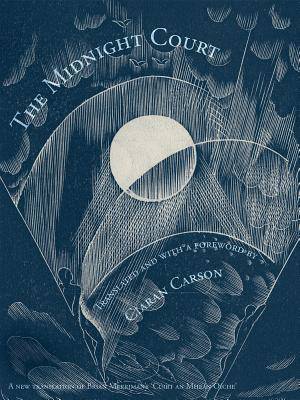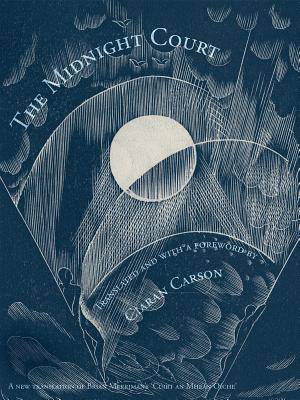
Bedankt voor het vertrouwen het afgelopen jaar! Om jou te bedanken bieden we GRATIS verzending (in België) aan op alles gedurende de hele maand januari.
- Afhalen na 1 uur in een winkel met voorraad
- In januari gratis thuislevering in België
- Ruim aanbod met 7 miljoen producten
Bedankt voor het vertrouwen het afgelopen jaar! Om jou te bedanken bieden we GRATIS verzending (in België) aan op alles gedurende de hele maand januari.
- Afhalen na 1 uur in een winkel met voorraad
- In januari gratis thuislevering in België
- Ruim aanbod met 7 miljoen producten
Zoeken
Omschrijving
Originally written in the Irish language by the 18th-century poet Brian Merriman (circa 1745-1805), The Midnight Court is here translated by one of Ireland's distinguished contemporary poets, Ciaran Carson. This extended satiric poem assesses the growing economic, political, and familial constraints of late 18th-century Catholic Ireland under British colonial rule, while subversively playing on the tradition of the aisling (or vision) poem in which a beautiful woman represents Ireland's threatened sovereignty. At the beginning of The Midnight Court, a dreadful female envoy from the fairies appears in a dream to the unmarried poet. She summons him before the court of Queen Aoibheall in order to answer charges of wasting his manhood while women are dying for want of love. He listens to complaints that vary from the celibacy of the clergy to marriages performed between old and young for purely economic reasons. In all their bawdy tales, the female courtiers praise fertility, as well as sexual fulfillment, and condemn the conventions of the day. At last the Queen pronounces judgment on the poet, who awakens as he is being severely chastised by all of the women of the court. While containing many insights into 18th-century social conditions, The Midnight Court is also an exuberant, even jaunty work of the comic imagination. As the translator Ciaran Carson states in his foreword: "The protagonists of the 'Court, ' including 'Merriman' himself, are ghosts, summoned into being by language; they are figments of the imagination. In the 'Court' the language itself is continually interrogated and Merriman is the great illusionist, continually spiriting words into another dimension."
Specificaties
Betrokkenen
- Auteur(s):
- Vertaler(s):
- Uitgeverij:
Inhoud
- Aantal bladzijden:
- 63
- Taal:
- Engels
Eigenschappen
- Productcode (EAN):
- 9781930630253
- Verschijningsdatum:
- 1/03/2006
- Uitvoering:
- Paperback
- Formaat:
- Trade paperback (VS)
- Afmetingen:
- 154 mm x 203 mm
- Gewicht:
- 117 g

Alleen bij Standaard Boekhandel
+ 35 punten op je klantenkaart van Standaard Boekhandel
Beoordelingen
We publiceren alleen reviews die voldoen aan de voorwaarden voor reviews. Bekijk onze voorwaarden voor reviews.









